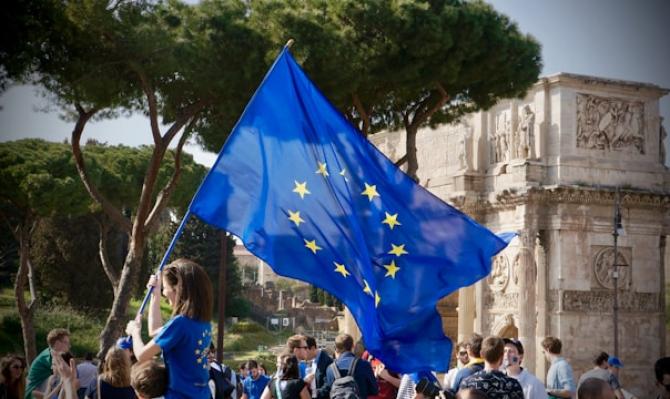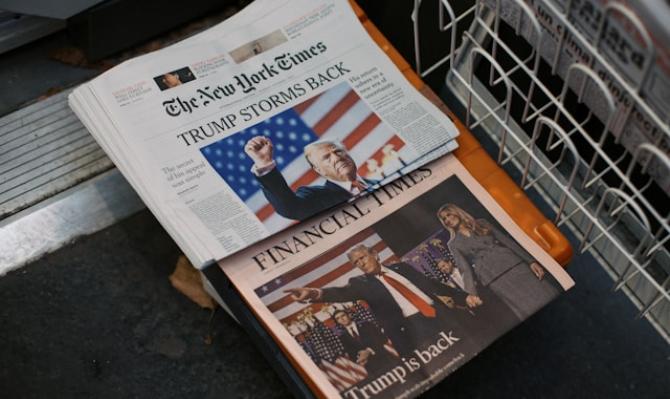‘Quo vadis’ Europe?
If Europe only moves forward in times of crisis, as has become apparent in the last 15 years, then the current opportunity is unequalled, given the scale of the challenges in the international geopolitical context. The alternative is a return of the Hamlet-like avatar that has represented the EU many times throughout its history.

The European Parliament elections this June were held at a key moment for the European construction process, taking into account the economic, political and social challenges that our continent must address in the coming years. Many of these challenges are discussed in the Dossier of this Monthly Report dedicated to the topic. They range from the loss of competitiveness in a world that is undergoing a reconfiguration of value chains and relationships between economic blocs, to the financial challenges involved in strengthening a defence policy in the midst of the energy transition, while not forgetting the challenges linked to the bloc’s enlargement and the need to bolster its institutional framework.
If Europe only moves forward in times of crisis, as has become apparent in the last 15 years with the NGEU funds (COVID) and the Single Supervisory Mechanism (financial crisis), then the current opportunity is unequalled, given the scale of the challenges in the international geopolitical context. This Zeintenwende (turning point or change of era), to coin the phrase used recently by Macron and Scholz, should be addressed with ambition in order to lay the pillars of the economic and political union for the coming decades. The alternative is to hesitate, falter, and delay decisions, with a return of the Hamlet-like avatar that has represented the EU many times throughout its history, as Timothy Garton Ash reminded us in his excellent Homelands: a personal history of Europe. And the risk of this inaction is the «death of Europe» as we currently know it, as the French President has highlighted in recent weeks, not without a degree of drama.
Therefore, the solution to the challenges, as is almost always the case, is more, not less, Europe. It is essential to maintain the pace of the transfer of sovereignty to European institutions, while remaining aware that progress in the fiscal or political union will face centrifugal forces of all kinds, at a time when the next enlargement will introduce new complications across the entire institutional (and financial) framework. In this context, the list of priority economic issues for advancing the euro area is not all that different from the one that existed prior to the 2019 European elections: completing the banking union with a European deposit guarantee fund, making progress in the union of capital markets and the integration of services markets, strengthening the role of the euro as an international reserve currency or creating a European risk-free asset. It is true that the context has been challenging, and this has delayed progress on structural matters that demanded a high degree of consensus, but it is increasingly important to seal any leaks if we are to make progress with the Economic and Monetary Union. Meanwhile, on the horizon we see an economic policy trilemma, which must be addressed in the medium term and which comprises three spheres: new security and defence policy, open strategic autonomy and the energy transition. This is an enormous financial challenge that will require the multi-annual funding framework to be rebuilt and aligned with the limits of the new Stability Pact, taking into account that the European coffers have been drained by cushioning the supply shocks of recent years, as evidenced by the current public debt ratios in the EU-27 (82.6%) or in the euro area (89.9%). Therefore, many challenges will have to be tackled with limited fiscal margin for manoeuvre and with an ECB that will have to adapt the size of its public debt portfolio to a very different environment than the one which justified the intensive use of unconventional tools.
With the analysis of the challenges that need to be addressed now covered by the publication of the Letta report and, shortly, the Draghi report (innovation, competitiveness, scale, savings deficit, economic and defence security, European public goods, etc.), it is time to get to work. The extent of the ambition of the next term will determine the region’s role in a world that is irreversibly doomed to be divided up into blocs, which increases the risk posed by failing to reduce our dependence on the outside for energy or technology (chips, AI, etc.). or allowing growth to remain close to «secular stagnation». Political balances in the region will not facilitate this task and may result in the next advances occurring at different speeds in the face of reluctance from certain jurisdictions to cede more sovereignty; in the meantime, a new enlargement will have to be handled, and this will be no easy task given the countries involved. It may seem that there are too many things on the table, but the only thing that is not permitted at the crossroads at which Europe finds itself is paralysis and complacency.




